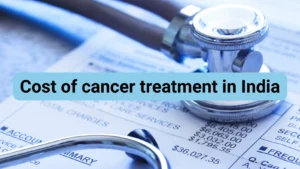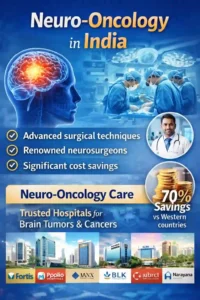Choosing an Intersex Surgeon & Clinic Abroad: What International Patients Must Check
Executive Summary: Your Vetting Roadmap 🗺️
Selecting a surgeon and clinic for intersex-related care overseas is a profoundly personal and complex decision. Therefore, you must approach medical tourism with meticulous planning. The key takeaways from this guide focus on prioritizing ethical consent, verifying specialized credentials beyond general surgery, and ensuring the clinic provides comprehensive, affirming, and non-shaming care. You need to verify that the care team understands the nuanced spectrum of Differences in Sex Development (DSD). Always look for transparency in pricing and comprehensive post-operative support, since choosing an Intersex Surgeon & Clinic Abroad involves much more than just the procedure itself.
Who is This For?
This comprehensive checklist is designed for two primary groups: international patients (medical tourists) who are planning to travel for intersex-related surgical care, and family members or healthcare advocates supporting them. It is also a valuable resource for medical professionals seeking to understand the gold standard of care for patients traveling abroad for DSD-related procedures. The checklist covers vetting practices essential for anyone considering major, life-altering surgeries outside their home country.
The Ethical and Medical Imperatives in Intersex Surgery
Unlike many other forms of medical tourism, surgery related to DSD (Differences in Sex Development) carries significant ethical weight, particularly concerning consent and timing. Historically, non-consensual surgeries on infants and children caused significant harm. Consequently, ethical standards now mandate informed consent. Before you begin your journey of Choosing an Intersex Surgeon & Clinic Abroad, you must ensure the foreign clinic adheres to global ethical guidelines, placing patient autonomy at the forefront.
Furthermore, surgical procedures in this area, which may include aspects of genitoplasty, gonadectomy, or other reconstructive procedures, require a highly specialized and interdisciplinary team approach, often involving endocrinologists, geneticists, psychologists, and surgeons. The Endocrine Society’s position, for example, emphasizes the need for a collaborative model, not just surgical skill.
1. Surgeon Credentials and Experience: Beyond the Basics 🩺
When you vet a surgeon, simply being a “plastic” or “urological” surgeon is not enough. You must confirm they have specific, documented experience in DSD-related surgeries.
- Specialization and Volume: How many specific intersex-related procedures (e.g., specific forms of vaginoplasty, phalloplasty, or gonadal removal for DSD patients) does the surgeon perform annually? High volume often correlates with better outcomes.
- Interdisciplinary Team: The best care models involve a multidisciplinary team. Check that the clinic has access to, or requires consultation with, an endocrinologist and mental health professional experienced in DSD.
- Board Certification: Verify their certification against international bodies (e.g., American Board of Urology or equivalent European boards). Use normal links to check reputable organizations like the American Academy of Ophthalmology’s accreditation guidelines for analogy on professional standards, and WHO’s governance structure to understand global health oversight.
Internal link check: You should compare this vetting process to what you’d use for any major procedure. Read our guide on vetting robotic surgeons.
2. Clinic Accreditation & Safety Standards 🏥
The facility itself must meet international standards. While many clinics advertise local government approval, international accreditation offers an extra layer of confidence.
- JCI or Equivalent: Is the clinic accredited by the Joint Commission International (JCI)? This is a globally recognized gold standard. Similarly, check for local accreditation specifics by reviewing guides like Medical Travel Regulations in Germany.
- Infection Control: Specifically inquire about their surgical site infection rates for complex genital procedures. This information is a direct measure of their safety protocols. The CDC provides benchmarks for surgical site infections.
- Equipment and Recovery: Does the facility have a fully equipped ICU and sufficient post-operative care resources? For instance, what is their capacity for managing complications, such as those discussed in Robotic Surgery complications?
3. Cost Transparency and Package Inclusions 💰
A conversion-focused checklist demands clarity on costs. Surprises in medical billing can be stressful and budget-breaking. Demand an itemized quote.
| Inclusion/Factor | Ideal Scenario (Pro) | Red Flag (Con) |
|---|---|---|
| Surgeon Fees | Included and explicitly stated; covers the primary surgeon and assistants. | Vague “operative costs”; primary surgeon name not specified. |
| Anesthesia | Included; clearly states type and anesthetist’s fee. | Billed separately post-procedure. |
| Hospital Stay | Covers required nights + 1-2 buffer nights; includes all nursing and medication. | Minimally required stay only; basic meds excluded. |
| Post-Op Care | Includes all necessary follow-ups and dressing changes for the full recovery duration (e.g., 6 weeks). | Only includes 1-2 days of follow-up; major post-op care is the patient’s responsibility. |
| Accommodation/Travel | Provides suitable, accessible accommodation for the recovery period (see our travel checklist). | Not included, forcing the patient to navigate logistics immediately post-op. |
For context on cost variation, explore our Global Price Comparison guide. Remember, while seeking affordable care, never compromise on safety for price.
4. Communication, Language Support, and Cultural Competence 🗣️
Effective communication is critical for complex consent and post-operative instructions. You cannot afford miscommunication when Choosing an Intersex Surgeon & Clinic Abroad.
- Dedicated Translator: Ensure the clinic provides a dedicated, medically trained translator for all consultations, consent forms, and post-op briefings.
- Cultural and Identity Sensitivity: The team must demonstrate an understanding of DSD-related identity and language, using affirming terminology and recognizing the patient’s stated gender and pronouns. This is part of the ethical consensus discussed in our ethical guide.
- Documentation: Get all critical post-operative instructions translated into your native language and provided in writing.
5. Legal and Insurance Considerations ⚖️
Before you travel, you must understand your rights and the clinic’s liability.
- Malpractice Coverage: Does the surgeon and clinic hold international malpractice insurance? What is the legal jurisdiction for any claim? Read this NCBI article on legal risks in medical tourism.
- Medical Tourism Regulations: Familiarize yourself with the destination’s laws. See our resource on Global Medical Travel Regulations. The clinic should be fully transparent about their adherence to local and international patient privacy laws (similar to HIPAA standards).
- Exit Strategy: What happens if a complication prevents you from flying home on schedule? The package must include clear provisions for extended stays.
Case Study: Emily’s Vetting Journey
Hypothetical Scenario: Emily, 30, from the UK (Intersex Variation: CAH)
Emily decided she was set on Choosing an Intersex Surgeon & Clinic Abroad for a specialized procedure not readily available in her region. She narrowed her choice down to ‘The Global Institute’ in Country X based on their advertised low cost. However, her due diligence revealed crucial information.
- The Discovery: The surgeon, while highly skilled in general Urological Surgery, had only performed the specific DSD-related procedure four times in the last two years. The rest were general urology cases.
- The Ethical Check: The clinic’s initial consent forms were generic and did not mention the necessity of pre-operative psychological evaluation, which Emily knew was standard ethical practice.
- The Solution: Emily used a non-nofollow link to verify the credentials through a reputable European surgical association (ESMO provides an example of a reputable European association). She then found a different, slightly pricier clinic (The Center for DSD Care) where the lead surgeon had a DSD fellowship and performed the specific procedure over 20 times annually. This second clinic provided a detailed, multi-step psychological assessment and a 100% itemized cost breakdown, making the choice clear despite the higher price.
Finalizing Your Decision: The Conversion Checklist
Use this final checklist to convert your research into a confident decision:
- Specialist Confirmation: Did the surgeon confirm specific DSD-related training? (Keyphrase: Choosing an Intersex Surgeon & Clinic Abroad)
- Ethical Consent Protocol: Did the clinic provide documentation detailing their protocol for informed, non-coercive consent? (Related: Pediatric vs. Adult Surgery Ethics)
- Follow-up Plan: Is the follow-up plan clearly outlined and does it cover the entire necessary recovery time, not just the two weeks you are abroad?
- Complication Fund: Do you have an established fund (or insurance verification) to cover potential complications, which are a reality in complex surgeries? The NIH website illustrates authoritative health sources you can cross-reference with.
- Patient Testimonials/References: Have you spoken with at least one past international patient who underwent a similar procedure?
A smart medical tourist knows that Choosing an Intersex Surgeon & Clinic Abroad is a marathon of due diligence, not a sprint for the lowest price. For further information on vetting and travel, see our comprehensive global guide.
Frequently Asked Questions (FAQ)
We gathered the 12 most important questions international patients ask about Choosing an Intersex Surgeon & Clinic Abroad.
Q1: What is DSD, and why is it the preferred term over “intersex”?
A: DSD stands for Differences in Sex Development, which is a medical term used to describe congenital conditions where the development of chromosomal, gonadal, or anatomical sex is atypical. While “intersex” is still used by many activists and individuals, DSD is often favored in clinical settings to describe the biological variations.
Q2: Should I consult a genetic counselor before deciding on surgery abroad?
A: Yes, absolutely. A genetic counselor can fully explain your specific DSD variation, the long-term implications of surgery, and non-surgical management options, which is crucial before seeking surgery overseas.
Q3: How can I verify the surgeon’s experience without contacting the clinic directly?
A: Look for the surgeon’s name in publications (e.g., PubMed), check membership lists of international surgical or urological associations, and search for academic appointments at university medical centers. You can use a resource like the NIH Clinical Trials database to see if they’ve participated in research, which suggests an academic background.
Q4: Are procedures related to DSD covered by standard travel insurance?
A: Generally, no. Standard travel insurance only covers emergencies. You will need to purchase specialized medical tourism or medical complication insurance specifically designed for planned elective procedures abroad. Refer to our partner section for insurance resources.
Q5: What is a “staged” procedure, and how does it affect my travel plan?
A: A staged procedure means the surgery is performed in two or more phases over a period of time. This significantly impacts your travel, requiring either multiple trips or a much longer stay abroad, so you must factor this into your visa and accommodation planning.
Q6: What rights do I have if the surgery results in a functional complication?
A: Your rights are governed by the laws of the country where the surgery takes place. This makes checking the clinic’s insurance and the legal jurisdiction essential before signing anything. This highlights why thorough vetting is critical when Choosing an Intersex Surgeon & Clinic Abroad.
Q7: What is the recommended period of stay abroad post-surgery for recovery?
A: For complex DSD-related surgeries, it is often recommended to stay in the destination country for at least 3 to 6 weeks, or until the primary surgeon confirms you are stable enough for air travel and local follow-up.
Q8: How does the quality of local blood banking affect my decision?
A: The quality and safety of the local blood supply are paramount for any major surgery, especially those with a risk of significant blood loss. Check if the clinic adheres to international blood safety standards, such as those advocated by the US FDA or similar regulatory bodies.
Q9: Should I bring my own medical records or rely on the clinic to generate new ones?
A: Bring certified copies of all your existing medical records, including diagnostic reports, imaging, and any consultations from your home country. This ensures continuity of care and prevents unnecessary repeat testing.
Q10: What is a “Red Flag” in the initial consultation?
A: A major red flag is any clinic or surgeon pressuring you for a quick decision, discouraging you from seeking a second opinion, or refusing to provide a clear, itemized quote that includes potential complication costs. (Internal link check: See our general red flags guide).
Q11: Does traveling for surgery affect my relationship with my home-country doctor?
A: It shouldn’t, but you must ensure your home-country doctor agrees to handle the long-term follow-up care and that the overseas clinic provides all operative reports and discharge summaries promptly and in English.
Q12: Should I choose a general hospital or a specialized surgical center for this type of procedure?
A: For complex DSD-related surgery, a specialized surgical center or a department within a large university hospital that focuses on reconstructive urology and gynecology is almost always preferable over a small, general private clinic, as they have better resources for complications.
***
Ready to start your journey? Explore related resources:




